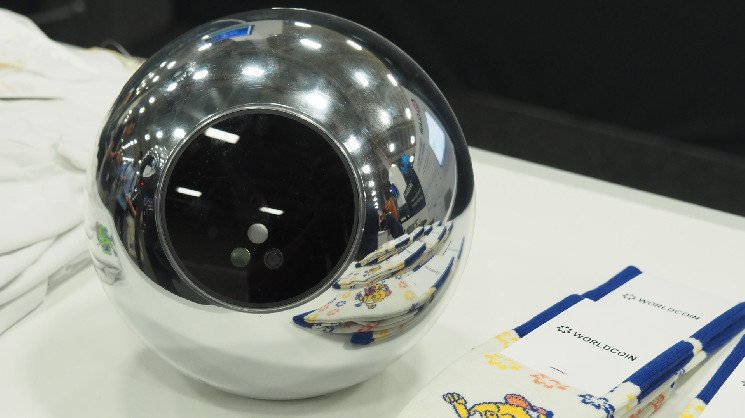Two years ago, Sam Altman, co-founder of OpenAI, introduced Worldcoin, a blockchain project famous for its unique metal orb used for eye scanning.
Recently rebranded as “World Network,” the platform offers users digital passports verified through iris scans to help online services distinguish humans from bots in an AI-driven internet.
A group of crypto veterans, including the co-founders of decentralized finance powerhouse Lido, are gearing up to launch “Y,” a blockchain identity platform aiming to compete with World Network.
CoinDesk obtained an internal planning document for the new project. A source close to Cyber Fund, the venture firm led by Lido co-founders Konstantin Lomashuk and Vasiliy Shapovalov, confirmed the authenticity of the document. It outlines a vision for a new blockchain-based identity platform that avoids World’s controversial eyeball-scanning Orb.
Cyber Fund chose not to comment. Ekram Ahmed, the head of marketing and communications for the blockchain infrastructure project Celestia, informed CoinDesk that he would be joining Y as an advisor. He clarified that the upcoming project is not affiliated with Celestia in any other way.
The document, titled “Y vs. WorldCoin,” details how Y plans to highlight World Network’s controversies – from privacy issues to allegations of exploitative user recruitment practices to the general unease surrounding the project’s metallic iris-scanning orb – as it attracts users.
Unlike World’s reliance on iris scans, Y will utilize the traces individuals leave behind while using the internet to verify their humanity. This approach, as per the Y planning document, mitigates privacy risks and reduces fraud, contrasting sharply with World’s use of iris scans.
Long-term vision
Y’s creators apparently aim to develop a “Crypto SuperApp that enables users to privately build and earn from their digital identity” over time. This vision closely aligns with that of World Network, which offers an identity-centric blockchain, crypto wallet, and app ecosystem.
The Y document is light on implementation specifics, focusing more on positioning Y as a “direct competitor to WorldCoin” – a deliberate strategy to “garner maximum attention.”
Similar to World, Y will help internet users verify their human identity, a task expected to grow in significance as AI tools and AI-generated content deceive traditional identity solutions.
The primary distinction between the two platforms will be their user authentication methods.
While World assigns users “World IDs” using biometric data like iris scans, Y will aggregate data from users’ social media and blockchain activity and utilize the Ethereum Attestation Service for verification. The Ethereum Attestation Service comprises tools for users to formally attest to the accuracy of specific data, beneficial for applications like user authentication.
According to the authors of the planning document reviewed by CoinDesk, Y’s authentication procedures aim to address some of WorldCoin’s weaknesses, such as “eliminating risks associated with biometric data leaks and reducing opportunities for fraud.”
Y’s “social-graph-based” approach also aims to provide a more nuanced numerical evaluation of a user’s “personhood” compared to World’s Orb, which offers a straightforward binary assessment of human or non-human.
Challenging the status quo
As outlined in the planning document reviewed by CoinDesk, Y’s marketing will center on World Network’s “controversial aspects.”
One of the main controversies surrounding the project is its reliance on biometric data. Although World asserts that it securely encrypts iris scans, the authors of the Y document point out that the service has sparked significant privacy concerns, leading to bans in countries like Spain and Kenya.
World’s approach has also led to the emergence of black markets where users can buy and sell scans to create fake accounts. Additionally, its reliance on centralized hardware and connections to OpenAI have raised apprehensions among some decentralization-focused crypto enthusiasts.
If Y aims to compete directly with World, it will need to make significant strides in terms of user numbers. Since its launch in 2023, World has onboarded over 15 million users, with seven million authenticated by the Orb and the rest opting for a lower-tier World ID without eye scanning.
Lido stands as the largest decentralized finance app on Ethereum, boasting over $26 billion in “staked” deposits from investors who support Ethereum’s security by staking ETH with the platform.
In addition to leveraging their influence within the crypto community to promote Y, Lido’s founders are likely to capitalize on World’s ties to OpenAI to attract users.
“With Sam Altman, co-founder of both WorldCoin and OpenAI, there is a real possibility that WorldCoin may follow the trajectory of OpenAI,” states the Y document, highlighting that “OpenAI initially started as an open-source, non-profit initiative but later transitioned into a closed-source for-profit corporation.”
It remains uncertain how – or if – Y will leverage connections to Lido or any of Cyber Fund’s other portfolio companies, which include the blockchain validator firm P2P.org and Ethereum layer-2 network Nil.

